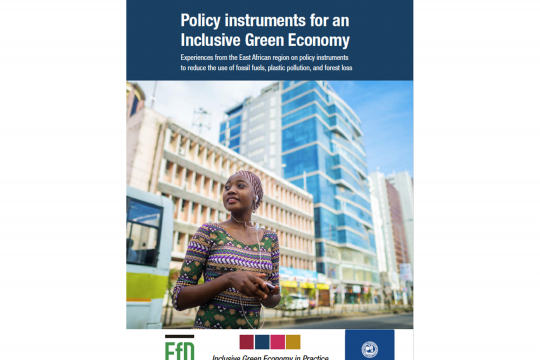A report is now available, which reflects on experiences from East Africa in addressing key environmental and social challenges: fossil fuels, plastic pollution, and deforestation. The report has been compiled by civil servants and academics and represents a unique learning opportunity for policymakers as well as academia.
Economic growth is an important goal in East Africa to create better living conditions for the rapidly growing populations. However, economic growth often comes at a high price in terms of pollution, loss of environmental resources, and unequal impacts on human health.
Governments address these challenges by implementing policy instruments, such as bans, taxes, fees, and information. But there is still a long way to go to make economic development greener. It’s also important to make sure that the policies are acceptable and don’t leave vulnerable groups behind.
Civil servants and academics from Ethiopia, Kenya, Rwanda, Tanzania, and Uganda, participating in the Inclusive Green Economy in Practice Program met in a three-day workshop in November 2022 to discuss what policies work and what don’t. Before the workshop, the participants had jointly made reviews of each country's green economy policies.
This report synthesizes the results and conclusions from the national policy reviews and the discussions during the workshop.
For instance, the group that discussed fossil fuels concluded among many other things that subsidies should only be used for a limited time and with a specific purpose. Policies also need to be coherent, so that taxes and subsidies work in the same direction.
The analysis of policies to reduce plastic pollution gave maybe somewhat surprising results. A population survey, conducted prior to the workshop as part of the IGE program in the five countries, involving 5,000 respondents, showed that the support for bans or taxes on plastic bags is strongest in countries with the most stringent policies.
When it comes to deforestation, a key issue is the use of charcoal for cooking and heating. A ban on charcoal would be logical from an environmental and health perspective, but it’s important to consider people’s livelihoods and cultural values when implementing policies to be successful. Showing the value of standing forests can be a more successful alternative, such as encouraging people to use forests for the production of honey, mushrooms, and eco-tourism.
Download the full report to read about all the interesting conclusions from this comprehensive workshop!
